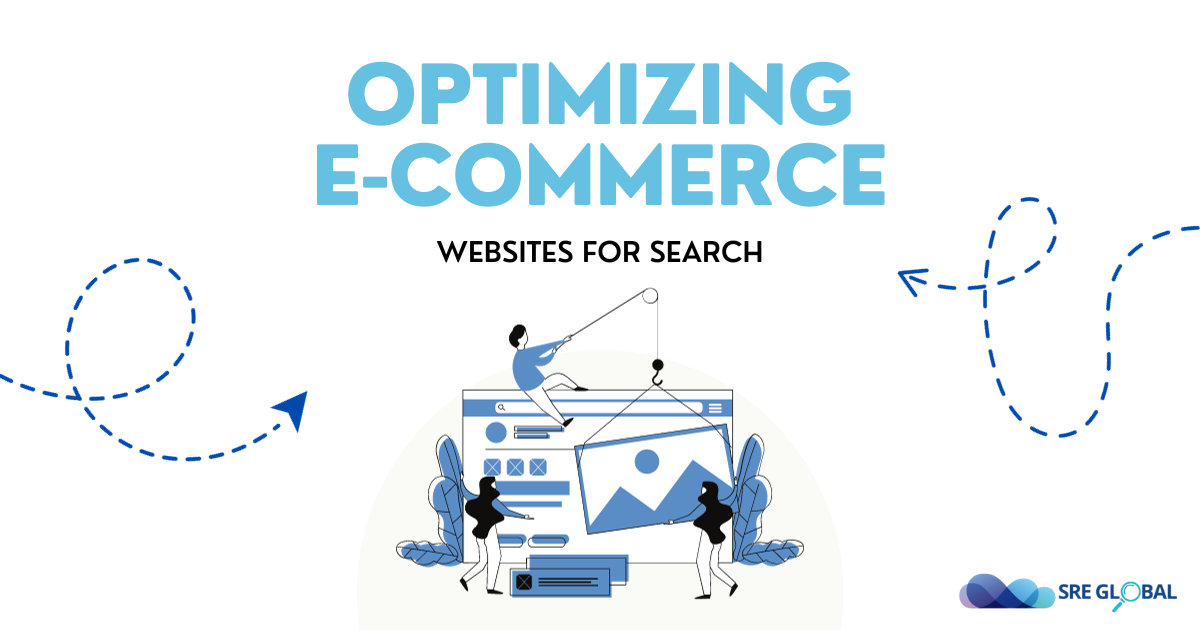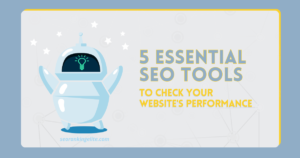Optimizing E-commerce Websites for Search
Welcome to the world of e-commerce, where businesses thrive in the digital landscape and consumers can indulge their shopping desires with just a few clicks.
In this fast-paced online marketplace, it’s crucial for e-commerce websites to stand out from the competition and attract high-quality traffic. And that’s where SEO comes into play.
If you’re an e-commerce owner or marketer looking to boost your website’s visibility in search engine results pages (SERPs), you’ve come to the right place.
In this blog post, we’ll explore some tried-and-true strategies for optimizing your e-commerce website for search engines.
From product page SEO tactics to mobile commerce optimization, we’ve got all the tips and tricks you need to take your online store to new heights.
So without further ado, let’s dive into the exciting world of e-commerce SEO and discover how you can make your website shine amidst a sea of competitors!
Product Page SEO Tactics
When it comes to optimizing your e-commerce website for search engines, one of the most important areas to focus on is your product pages.
These are the virtual storefronts where potential customers land when they’re searching for specific items or browsing through your online inventory.
To make sure your product pages are optimized for SEO, start by conducting thorough keyword research. Identify the keywords and phrases that are relevant to each individual product and incorporate them naturally into the page’s title tag, meta description, and throughout the content.
Another key aspect of product page optimization is creating unique and compelling descriptions. Avoid using generic manufacturer descriptions as they can lead to duplicate content issues.
Instead, craft original copy that highlights the features, benefits, and unique selling points of each item.
In addition to textual content optimization, don’t forget about image optimization as well. Use descriptive alt tags with relevant keywords for all images on your product pages.
This not only helps improve accessibility but also provides another opportunity to rank in image searches.
Furthermore, ensure that your product pages have clear and user-friendly URLs that include relevant keywords rather than random strings of numbers or characters.
User-friendly URLs not only help visitors navigate through your site but also provide search engines with valuable information about the page’s content.
Don’t overlook internal linking within your e-commerce site. Linking related products together helps both users and search engines find other items they may be interested in purchasing from you.
By implementing these tactics on your e-commerce website’s product pages, you’ll increase their visibility in search engine results while providing an engaging experience for potential customers who visit your online store.
So get started today and watch as organic traffic starts pouring into those carefully crafted landing spots!
Category Page Optimization
When it comes to optimizing your e-commerce website for search engines, don’t overlook the importance of category pages. These pages play a vital role in guiding users and helping them find the products they are looking for. Here are some tips to optimize your category pages:
1. Clear and descriptive titles
Make sure each category page has a clear and concise title that accurately describes the products it contains. Use relevant keywords in the title to improve its visibility in search results.
2. Unique meta descriptions
Craft unique meta descriptions for each category page, highlighting what sets it apart from others. This will entice users to click through and explore further.
3. Strategic use of headings
Utilize heading tags (H1, H2, H3) on your category pages to structure the content logically and help search engines understand the hierarchy of information.
4. User-friendly URLs
Ensure that your category page URLs are short, descriptive, and include relevant keywords whenever possible.
5. Rich content
Incorporate high-quality images, engaging videos, informative product descriptions, and customer reviews on your category pages to provide valuable information to both users and search engines.
6. Internal linking
Include links from your homepage or other prominent pages within your site hierarchy leading directly into specific categories or subcategories.
Remember that optimizing category pages is an ongoing process – regularly monitor their performance using analytics tools, make necessary adjustments based on user behavior data, and keep refining them over time.
User Reviews and SEO
User reviews play a crucial role in the success of an e-commerce website. Not only do they provide valuable feedback to potential customers, but they also have significant impact on search engine optimization (SEO) efforts.
When it comes to SEO, user-generated content like reviews can boost your website’s visibility in search results. Search engines consider user reviews as fresh and relevant content, which is highly valued by both search algorithms and users themselves.
Having a steady stream of positive reviews can improve your website’s credibility and authority in the eyes of both consumers and search engines.
Positive user experiences shared through reviews can increase click-through rates, reduce bounce rates, and ultimately drive more organic traffic to your site.
To optimize user reviews for SEO purposes, make sure they are prominently displayed on product pages. Encourage customers to leave detailed feedback that includes relevant keywords related to your products or services. This will help improve keyword relevance for those particular pages.
Additionally, respond promptly to any negative or neutral reviews you receive. Addressing customer concerns shows that you value their opinions and are committed to providing excellent customer service. It also helps build trust with potential customers who may be reading these reviews.
Remember that authenticity is key when it comes to user-generated content. Avoid fake or paid-for reviews as this not only goes against ethical practices but could also result in penalties from search engines if discovered.
Leveraging user-generated content such as customer reviews is an effective way to enhance your e-commerce website’s SEO performance. By optimizing the display of these testimonials and engaging with users through responses,
You can improve visibility in search results while building trust with potential customers.
Handling Duplicate Content
Duplicate content is a common issue faced by e-commerce websites, and it can negatively impact their search engine rankings. When multiple pages on your site have the same or very similar content,
Search engines may struggle to determine which page should be ranked higher in search results. To avoid this problem, here are some effective strategies for handling duplicate content.
One way to address duplicate content is by using canonical tags. These tags tell search engines which version of a page should be considered the main one and indexed.
By specifying the preferred URL, you can consolidate link equity and prevent dilution of your website’s ranking potential.
Another approach is to implement 301 redirects for duplicate URLs. This technique permanently redirects users and search engines from one URL to another, indicating that the original page has moved permanently to a new location.
This helps consolidate link juice and avoids confusing search engines with multiple versions of the same content.
Additionally, utilizing robots.txt files can help control how certain pages or sections of your website are crawled by search engine bots. You can use this tool to block access to duplicate or low-quality content that could harm your SEO efforts.
Regularly monitoring your website for duplicates is crucial as well. Tools like Siteliner or Screaming Frog can help identify any instances of duplicate content so that you can take action promptly.
By implementing these strategies and regularly auditing your website’s content, you can effectively handle duplicate content issues and improve your e-commerce website’s SEO performance.
Mobile Commerce SEO Strategies
In today’s digital age, having a mobile-friendly website is no longer an option but a necessity. With the increasing number of people using their smartphones and tablets to make online purchases, optimizing your e-commerce site for mobile search has become crucial.
Here are some effective strategies to improve your mobile commerce SEO:
1. Responsive Design
Ensure that your website is built with a responsive design that automatically adjusts its layout and content to fit different screen sizes. This will provide users with a seamless browsing experience across all devices, improving user engagement and reducing bounce rates.
2. Page Speed Optimization
Mobile users have shorter attention spans and expect websites to load quickly on their devices. To improve page loading speed, optimize images, minimize CSS and JavaScript files.
It also enable browser caching, and utilize Content Delivery Networks (CDNs). Google’s PageSpeed Insights tool can help identify areas for improvement.
3. Voice Search Optimization
The rise of voice assistants like Siri, Google Assistant, or Alexa means that more people are using voice search to find products online. Optimize your product descriptions by incorporating long-tail keywords in natural language patterns commonly used in voice searches.
4. Local SEO
Many mobile users search for products or services while on the go or looking for businesses nearby. Make sure you include location-based keywords in your content and meta tags to rank higher in local search results.
If you want to read other blogs about SEO, you can read more on SEO Ranking Elite.
Need SEO help? Contact SEO Ranking Elite, your premier SEO service agency. Partnered with the Madex Group and Madex Academy, we deliver effective strategies for SEO success, targeting businesses in Malaysia and Singapore.





